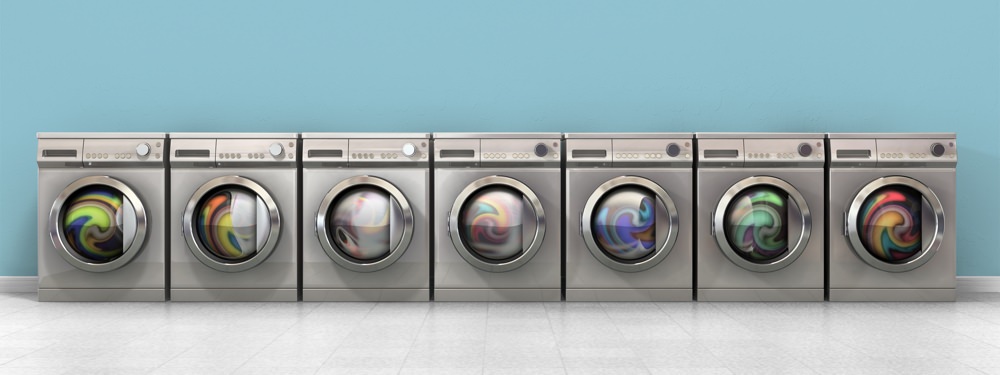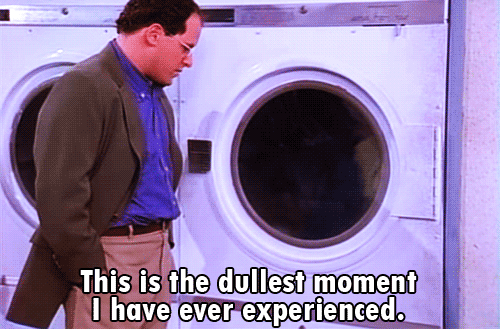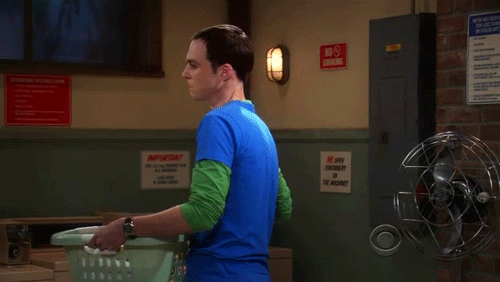Decipher Your Clothes' Care Labels
Interpreting the series of 'care instructions' on the back of your clothes label.

When you spend good money on your clothes, you want them to last. And one of the most damaging things you can do to clothes is actually something that a lot of us do every week: Laundry. Whether you sort your colors or use fabric softener, that's up to you. But we will say that in order keep your wardrobe in peak condition, you'll want to avoid these simple laundry pitfalls.
Take a few moments to ensure you won't damage your clothes before tossing them in the wash. Unroll your shirt sleeves. Zip up your zippers. Those metal teeth can snag or scratch delicate, knit and woven clothing that's being washed in the same load. On the flip side, make sure button-front shirts are unbuttoned. When fastened, it can stress buttons and buttonholes and lead to premature poppage. Also tie any drawstrings together so they don't snake into the garment (because those are a real bitch to try and retrieve after the fact).


We get it, especially if you don't own your own washer or dryer and have to pay for laundry by the load. But cramming too many clothes into your washer can create wrinkles and prevent your clothes from getting clean. And in a dryer, garments need to float freely to properly dry evenly. Overstuffing it all but guarantees deep creases, wrinkles and patches of dampness.
This, according to anecdotal research, seems to be a common mistake men make. If a little soap is good, than a lot is better, right? Not exactly. All the extra suds caused by more detergent can hold grime pulled from clothes and get caught in areas that won't always rinse clean (i.e. under a collar or around pockets) which leads to bacteria buildup. Sometimes, even the recommended amount can be too much for your average load. Instead, use 3/4 the amount of detergent that you'd normally use, then gradually increase that amount if your clothes are not coming out as clean as they should be.
Hard water often requires a little more detergent. If you have hard water where you live, check your detergent bottle for recommendations on how much to use.
Scrubbing that stain too furiously often embeds it into the fibers and can possibly wear away the fabric. Instead, be gentle and methodical—blotting the stain and working from the center of the stain outward, to help avoid leaving a ring around the cleaned area.


Listen up procrastinators. Folding or hanging your clothes fresh out of the dryer, while they're still warm, really does eliminate those annoying creases that will inevitably set in otherwise. So once you dump that pile onto your bed, get to work. It's tempting to just leave them in the dryer until you get around to it, but if you absolutely don't have time to put everything away then, give your shirts and pants a quick shake so wrinkles don't set in and lay them flat, one on top of another, until you can properly put them away.
Whether it's something you washed with your load, or maybe just soap or deodorant build-up in the armpits of your shirts, sometimes your freshly washed clothes still smell grungy. If the underarms are a problem, try washing your shirts inside out. For just general improvement in the freshness of your laundry, you can use the following to eliminate odors in your laundry and the washer (which is sometimes the culprit): Add a half cup of white vinegar with your detergent, or an odor-eliminating laundry booster like Borax. Or you can swap your regular detergent for Dr. Bronner's peppermint pure-castile soap, the cure-all soap that not only works nicely as a clothes detergent but will get rid of nasty, lasting odors.
Gentlemen, we implore you: don't dry your clothes on high heat. Ever. It's the fastest way to ruin a garment, damage the fibers or shrink it after one wearing. Instead, stick to medium or low heat and dry them for a little longer.